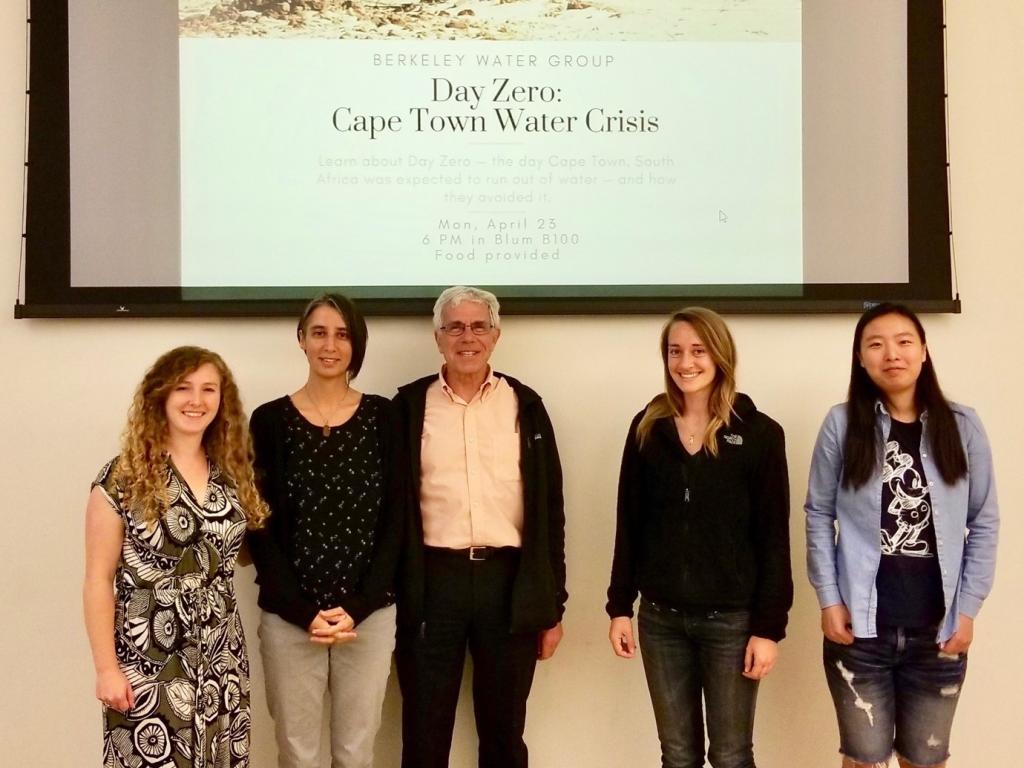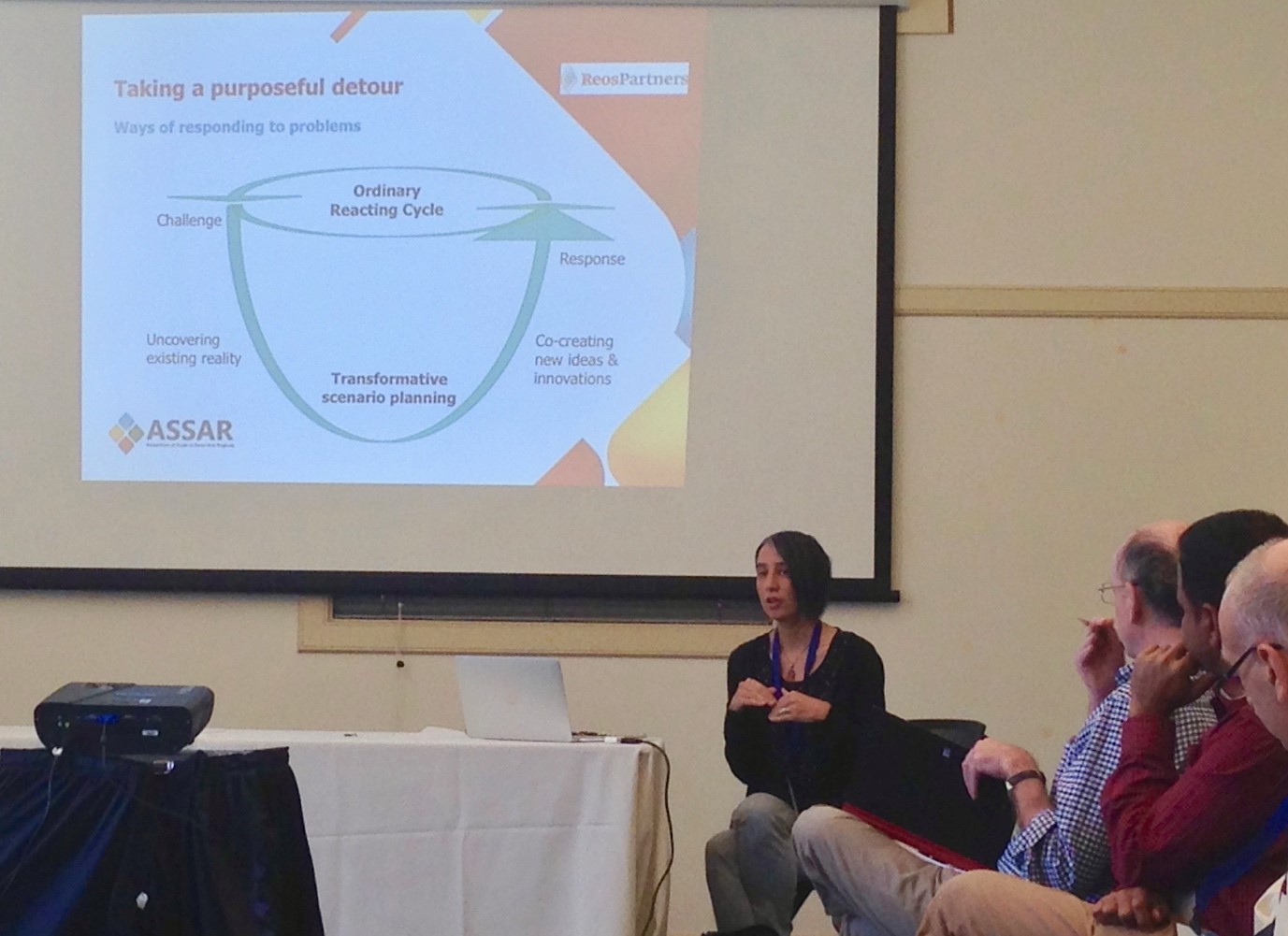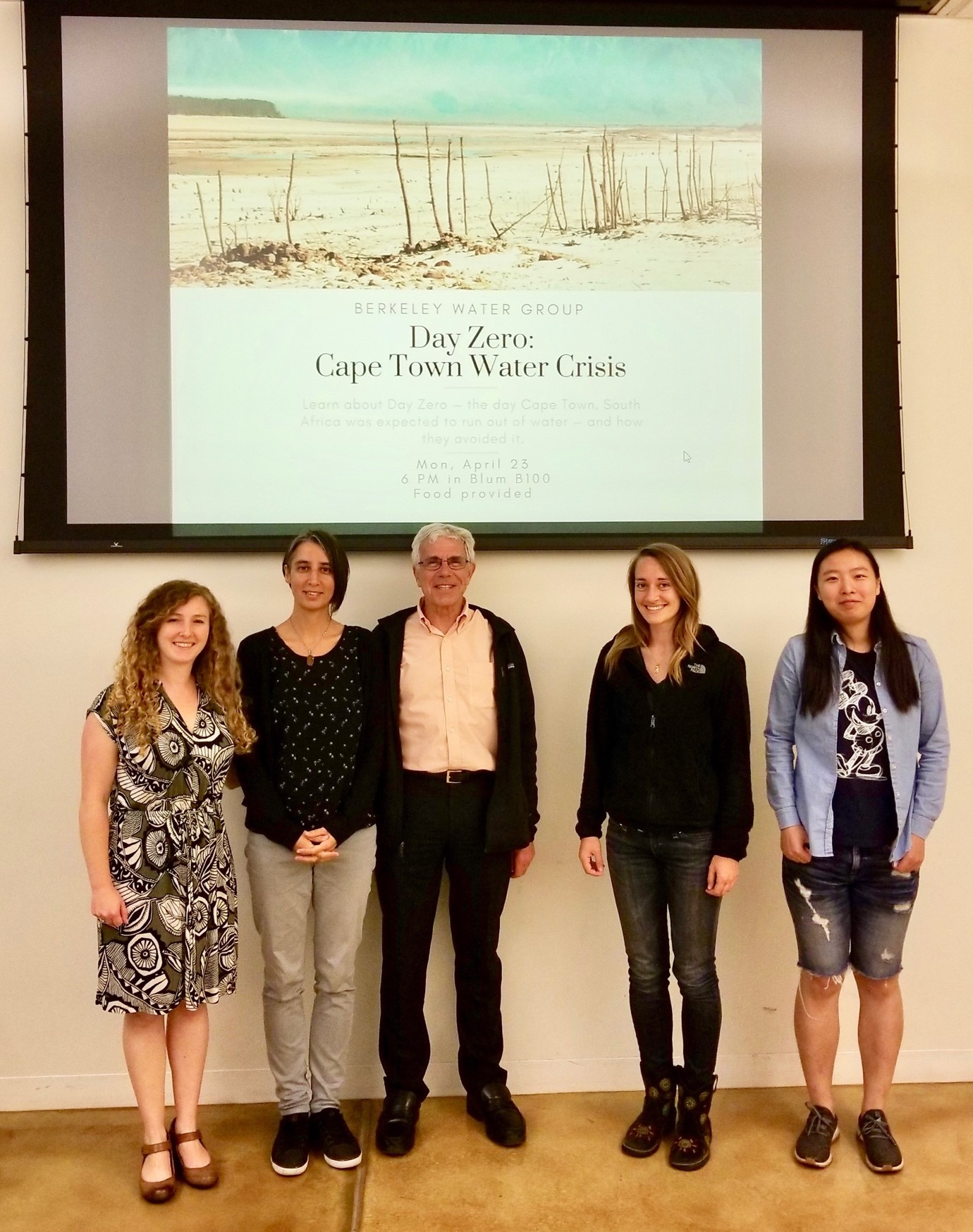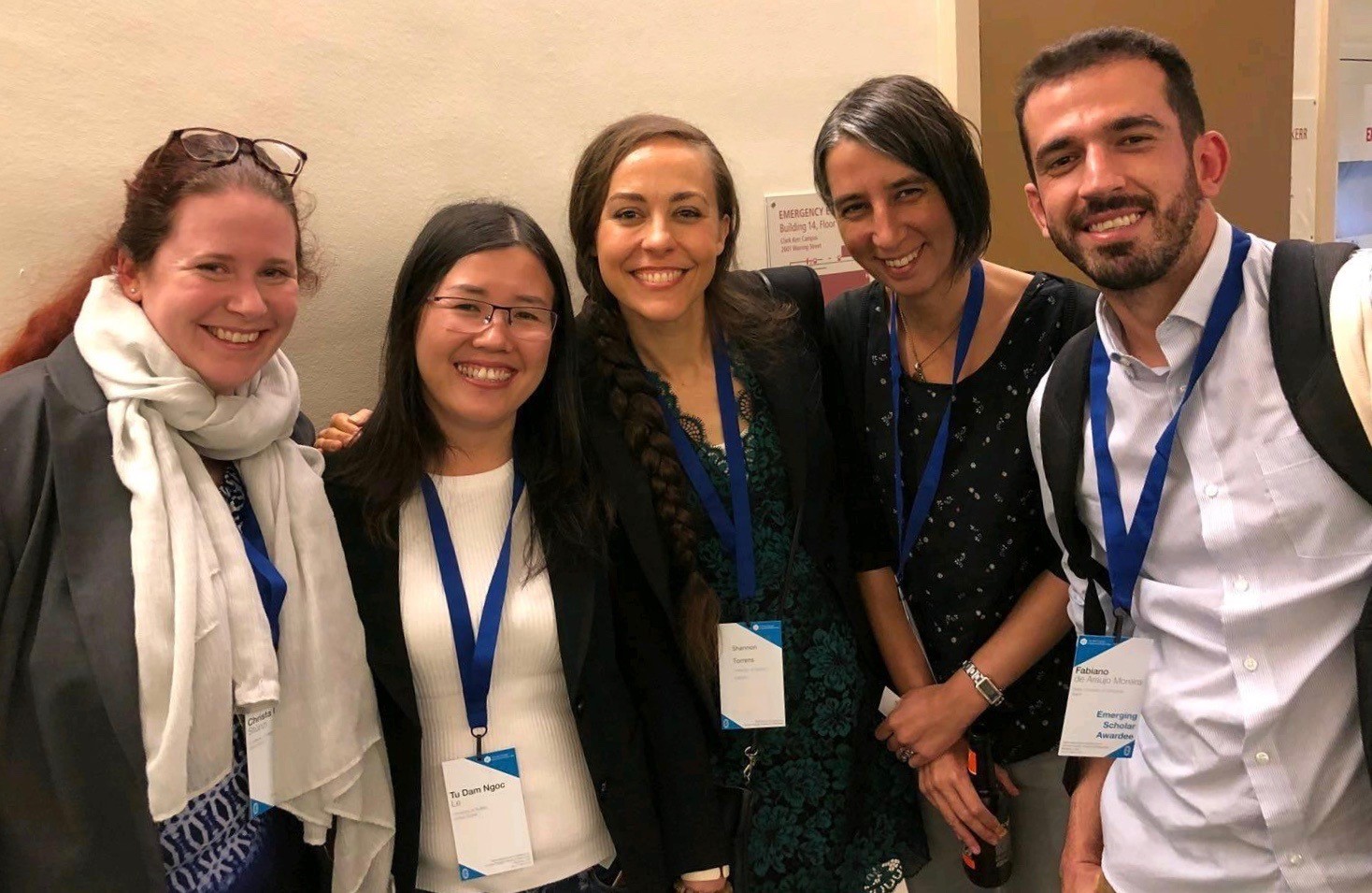ASSAR presents at the 10th Climate Change: Impact and Responses conference in Berkeley, California

By Teresa Perez

First time in the US. First time at a climate change conference. First time I remembered to tweet. First time I remembered to take a photo. #KeepingNickHappy
My thunder was somewhat stolen by Michel Gueldry’s keynote address titled “Speaking with the ‘enemy’: Tricks and tips for engaging climate change skeptics – and their limits.” In what was as much an insight into the psyche of marginalised groups in the USA as it was a manifesto for forging ahead together, he touched on principles that overlap with the Transformative Scenario Planning1 (TSP) processes. For example, by citing the achievements of Daryl Davies’s in his quest to understand why racists think the way they do, Gueldry underlined the importance of understanding the perspective of climate change sceptics in communication and collaboration. On the up side, Gueldry’s bottom line was in harmony with ASSAR’s messaging that climate change is a social issue. On the down side, it was a bit of a plot spoiler ahead of my presentation about Transformative Scenario Planning as a process that recognises the importance of including diverse and conflicting views.

Me attempting to explain ASSAR, Transformative Scenario Planning, my research methods and some findings inside 20 minutes.
Titled “Transformative Scenario Planning Workshops in Namibia and India: Why reflection is key” I drew on interviews with stakeholders to illustrate what people had found to be the strength of the process so far. I explained how workshops, designed to be a first step on a longer journey for stakeholders with influence, were spaces that helped some people to:
-
Question conventions
-
See denial and confusion as part of change
-
Be strategic
-
Interact differently
-
Cross social boundaries
-
Create spaces that can withstand conflict
My presentation fits with other research into adaptation forums, which have urged for greater critical reflection (see Haverkamp, 2017) amid a noticeable new wave of development done differently (see Duncan Green’s blog).
The Berkeley Water Group
Unfortunately, any interest in my presentation faded when people found out where I lived. My status as Cape Town resident propelled me to the top spot on the running order at the Berkeley Water Group’s seminar, which happened to be meeting one evening to discuss what the drought meant for California. I explained that this was not my area of research, but quickly overcame my shyness when I found out there would be free pizza.

Me and Bruce Macler (US Environmental Protection Agency) with the Berkeley Water Group
As it turned out I was upstaged by a news report the team showed, which concisely explained the ins and outs of the drought. This left me with very little to add. So I talked about the ACDI staff survey (thanks to Tali Hoffman) that gauged how people felt about the prospect of having no water. I fondly recalled contingency plans involving having some work meetings at Dian Spear’s house because she was getting a compost toilet. My ‘insights’ were followed by Bruce Macler who said that Cape Town was a wake up call. But he felt as if he was writing regulations with blinkers on because although water issues are related to other areas such as soil and air, these aspects of governance are out of his hands. It seemed the problem of working in silos that the ASSAR project has tried to overcome using participatory scenario processes, is somewhat ubiquitous (see Poshendra Satyal’s blog).

From left to right: Christa Isabelle StuÌnzi (we don’t need more international agreements but we need to act on the ones we have), Tu Dam Ngoc Le (Climate change adaptation in coastal cities in developing countries), Shannon Maree Torrens (rising sea levels and temperatures in the Pacific Islands and international law) Me, and Fabiano de Araujo Moreira (Shadow systems in adaptive capacity).
What I liked about the conference
The conference was minimalist. No fancy sit-down meals; lunch was a salad, sandwich and a biscuit which we ate in the sun in the courtyard. The presentations were varied and presenters were from a range of countries and at different stages in their career. In short, like a TSP workshop, I enjoyed talking to people who were tackling climate change from a wide range of perspectives. Next year’s conference is in Washington.
1A process developed by Reos Partners